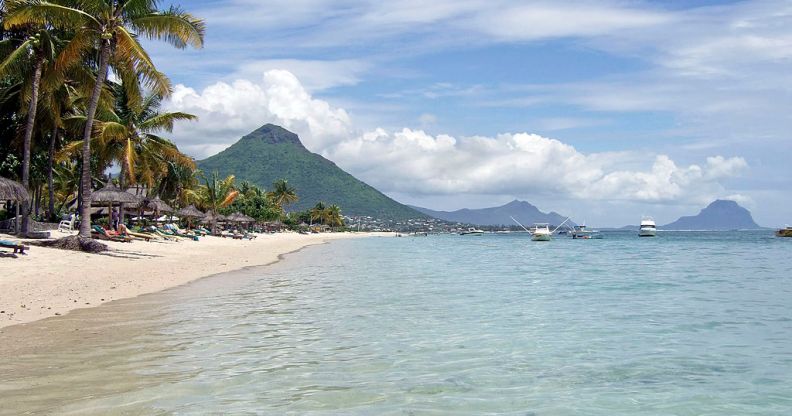Activists are moving to decriminalise homosexuality in Mauritius

BBC News & Current Affairs via Getty
An LGBT+ activist has teamed up with an advocacy organisation to challenge a law banning homosexuality in Mauritius.
Abdool Ridwan Firaas Ah Seek has brought a legal case challenging the constitutionality of Section 250, a law that punishes gay sex. The case had its first hearing by the Supreme Court last week and will have a second hearing in February of next year.
His legal case is being supported by the Collectif Arc-En-Ciel (CAEC), a human rights organisation in Mauritius working to improve the lives of LGBT+ people.
Under Section 250 – a colonial-era law from when Mauritius was ruled by Britain – people found to have had gay sex can be imprisoned for up to five years. Activists claim that the law is rarely enforced – but it has other impacts on the community.
Mauritius: Section 250 is ‘like the sword of Damocles’.
“Section 250 is like the sword of Damocles hanging over the lives of LGBT Mauritians,” Aschwin Ramenah, Director of CAEC said.
“The time has come to repeal this discriminatory law that unfairly targets members of our society simply because of who they love.”
Representatives from CAEC claim that the existence of the law contributes to a culture of stigma for LGBT+ people – which can discourage HIV testing and normalise hate crimes and discrimination.
The way in which adults lead their lives in close, consensual relationships in the privacy of their own homes should never be a matter for state interference.
Activists with CAEC are now hoping that the Supreme Court will rule that the law is unconstitutional.
“The way in which adults lead their lives in close, consensual relationships in the privacy of their own homes should never be a matter for state interference,” Ramenah added.
“Archaic laws like Section 250 have no place in our modern and democratic society.
“Challenging Section 250 opens a new chapter in Mauritian history. The CAEC hopes that the Supreme Court will relegate this law to the history books, and our country can finally live up to its reputation as a rainbow nation, where every citizen enjoys the same constitutionally-protected rights and is treated with equality and dignity.”
Various countries across the world still have colonial-era laws banning homosexuality in place.
Mauritius is just one country of many where LGBT+ people still live with the consequences of British colonisation. Various countries across Africa and Asia still have harmful anti-LGBT+ laws in place that were first introduced under British rule.
Last year, the Indian Supreme Court ruled that Section 377 – a similar colonial-era law – was unconstitutional, and subsequently decriminalised homosexuality. The momentous decision has given LGBT+ activists in other countries where homosexuality is still illegal a renewed sense of hope for change.
This is not the first legal challenge against Section 250 in Mauritius. In October of this year, four gay men brought a similar legal challenge to the Supreme Court.
29-year-old Najeeb Ahmad Fokeerbux of the Mauritian LGBT+ group Young Queer Alliance is one of the four men challenging the law. They believe that the Supreme Court could take up to two years to reach a decision in the case.
“Gay and bisexual men face a lot of physical and verbal violence in society,” he said in an interview with the Thomson Reuters Foundation.
“We know that homophobia won’t end with the law being scrapped. But it’s a step in the right direction,” said Fokeerbux.

